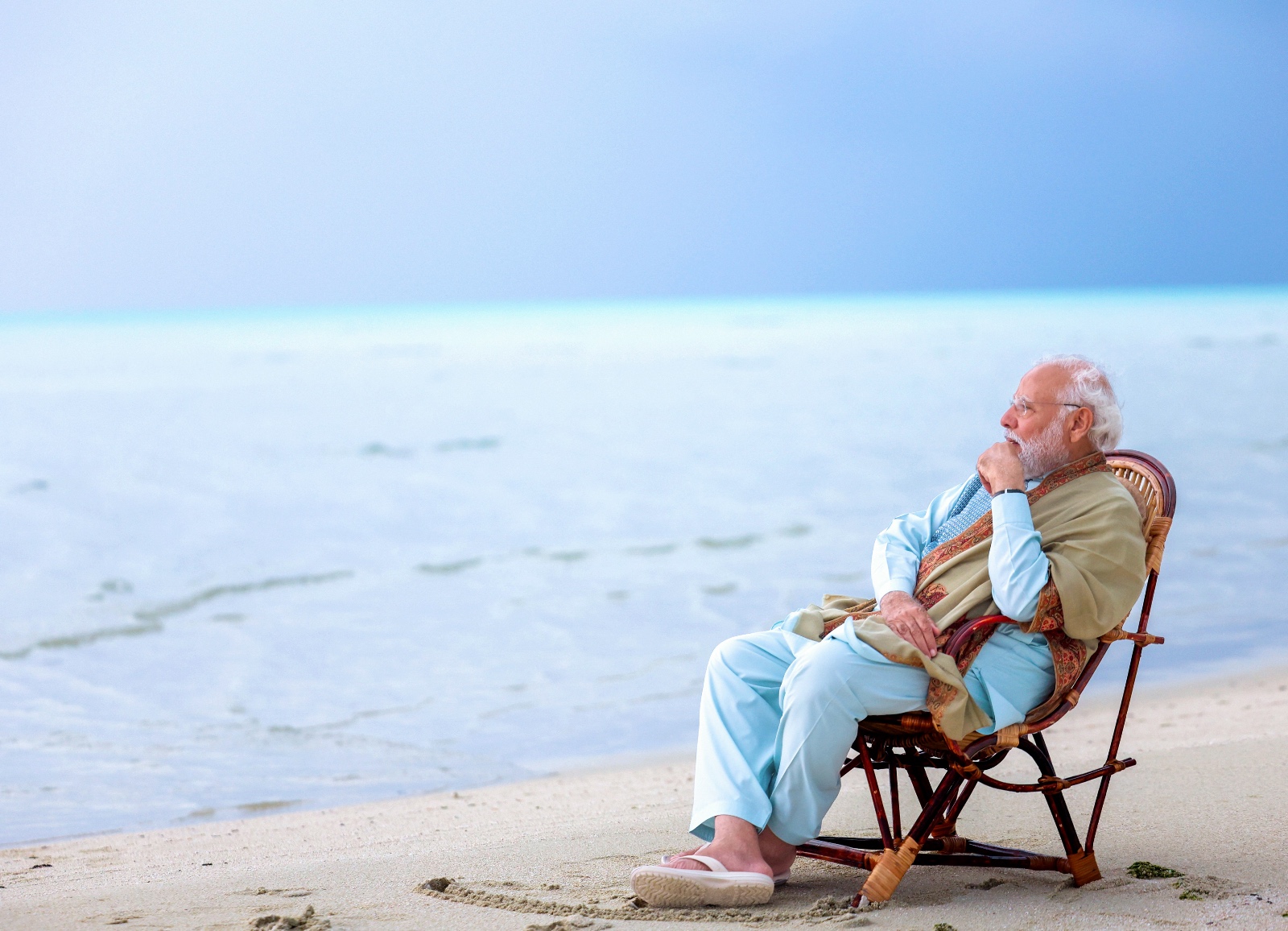Amidst the recent diplomatic tensions between India and Maldives, Israel, a close ally of New Delhi, has entered the scene to lend support to India.
The Maldives, well-known for its beaches and thriving tourism sector, is currently embroiled in a diplomatic dispute that poses a potential threat to its crucial tourism earnings.
The conflict arises from disparaging remarks recently made by three Maldives officials directed at India’s Prime Minister Narendra Modi, prompting calls for a boycott from Indian citizens and celebrities.
The controversy unfolded when the Indian Prime Minister shared picturesque images on the social platform X, showcasing himself snorkeling and leisurely walking along the beaches of Lakshadweep, a southern Indian archipelago.
Many online users perceived the post as a discreet attempt to redirect tourism from the Maldives to Lakshadweep. This interpretation arose due to the current Maldivian government explicitly adopting an anti-India stance since coming to power.
However, the post incited three Maldivian officials, identified as deputy ministers within the Ministry of Youth Employment, Information, and Arts, prompting them to make derogatory comments about the Indian Prime Minister.

Modi was labeled as a “clown,” “terrorist,” and a “puppet of Israel” by Maldivian junior ministers. Indian citizens started responding strongly online to these comments, and in “a show of solidarity,” Indian travel portals even suspended bookings for holiday packages to the Maldives.
In an official statement released shortly after the incident, the Maldives government acknowledged that the comments circulating on social media were “derogatory” and suspended the three Ministers. Additionally, it clarified that these opinions were personal and did not reflect the government’s position.
Concerns are growing that the tourism industry, a key source of revenue for the Maldives, may face a significant setback as vacationers consider alternative destinations amid the diplomatic tension between the two nations.
Maldives Turns To China
The latest problem is just one in a series of issues causing a deterioration in diplomatic relations between the two countries.
Relations between the Maldives and India have soured since the election of President Mohamed Muizzu last year, who is perceived as having pro-Chinese leanings.
Muizzu’s victory last year was fueled by a campaign centered on an “India Out” agenda, asserting that Indian military personnel stationed in Maldives posed a threat to his country’s sovereignty.
Muizzu has pledged to abandon his predecessor’s “India First” policy in a region where New Delhi and Beijing compete for influence.
Furthermore, newly elected Maldivian presidents have traditionally made New Delhi their first international destination to acknowledge India’s influence in the island nation.
However, breaking from this tradition, Muizzu chose Turkey for his inaugural overseas trip in December. President Muizzu is on a five-day visit to China from January 8 to 12, marking a significant shift in policy.
He has described China as the Maldives’ “closest” ally and urged increased Chinese investment.
During his address to the Maldives Business Forum in Fujian Province, Muizzu appealed to China to send more tourists to his nation.
He commended China’s Belt and Road Initiative (BRI). Muizzu met with Chinese President Xi Jinping on January 10 and signed 20 key agreements, including one focusing on tourism cooperation.
Ceremonial gestures marked the visit, including a red carpet welcome and a 21-gun salute in Beijing.
Following talks between the two leaders, an announcement was made regarding the elevation of bilateral ties to a comprehensive strategic cooperative partnership.
The agreements cover a range of areas, including tourism cooperation, disaster risk reduction, the blue economy, and strengthened investment in the digital economy.
While China has committed to grant assistance to the Maldives, the exact amount remains undisclosed. Despite growing ties with China, experts caution that the Maldives cannot afford to distance itself from India.
Indian tourists constituted the most significant group by nationality visiting the Maldives last year, comprising almost 11% of the tourism market, with many being high-spending visitors drawn to the luxury offerings of its shores.
Israel Steps In To Support India
While the diplomatic dispute unfolded between India and the Maldives, the spotlight also turned to Israel, as its name emerged several times in the ongoing events. It all began when Maldivian ministers went to the extent of branding Indian Prime Minister Narendra Modi as a puppet of Israel.
It’s noteworthy that the Maldives currently lack diplomatic relations with Israel. While diplomatic ties were established between the two countries from 1965 to 1974, they were suspended in 1974 and have not been reinstated.
Israel’s direct entry into the India-Maldives issue occurred when the Israeli embassy in India shared images of Lakshadweep on its Twitter handle.
The embassy highlighted its prior involvement in the desalination program in Lakshadweep, which was initiated at the Indian government’s request.
Expressing readiness to resume work on the project immediately, the embassy showcased the captivating beauty of Lakshadweep through images of pristine beaches and majestic landscapes.
We were in #Lakshadweep last year upon the federal government's request to initiate the desalination program.
Israel is ready to commence working on this project tomorrow.
For those who are yet to witness the pristine and majestic underwater beauty of #lakshadweepislands, here… pic.twitter.com/bmfDWdFMEq
— Israel in India (@IsraelinIndia) January 8, 2024
“We were in Lakshadweep last year upon the federal government’s request to initiate the desalination program. Israel is ready to commence working on this project tomorrow. For those yet to witness the pristine and majestic underwater beauty of Lakshadweep islands, here are a few pictures showing this island’s enchanting allure,” the Israeli embassy said.
The desalination project involves extracting salt and minerals from saline water, making it suitable for drinking and other purposes.
Sea water, with a salt concentration of 35,000 ppm, cannot be used directly for drinking. The desalination process can bring the salt concentration down to 10 ppm, considered suitable for consumption.
Only about one percent of drinking water worldwide comes from desalination. Lakshadweep, facing freshwater challenges as a group of small islands, could benefit from Israel’s expertise in saltwater sweetening.
Israel initiated water desalination several decades ago, and over 35% of its freshwater is currently derived from this process. The country employs reverse osmosis to treat seawater from the Mediterranean, effectively eliminating salt to render it potable.
Nevertheless, desalinated water presents its own set of challenges. A UNESCO report suggests magnesium deficiency in the daily diet is associated with heart disease.
This health concern is increasingly observed in regions where desalinated water is the exclusive drinking water source.
- Contact the author at ashishmichel(at)gmail.com
- Follow EurAsian Times on Google News




